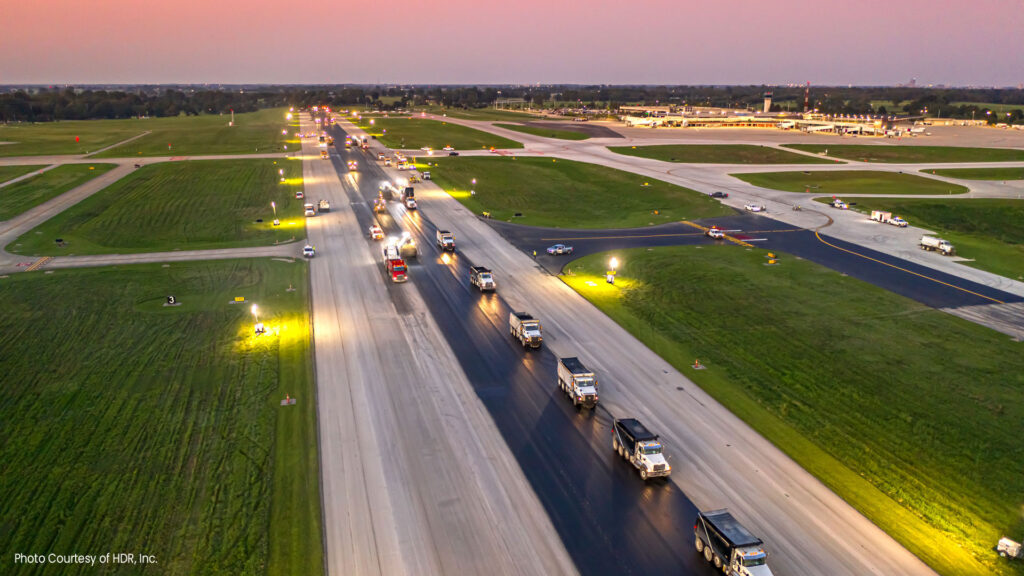August 14, 2024—Today, Blue Grass Airport is pleased to announce the results of a comprehensive economic impact study conducted by Mead & Hunt, a national aviation consulting firm. The study reveals Blue Grass Airport’s substantial benefits to the region, showcasing its significant contributions to local employment, payroll and overall economic output. In addition to these economic benefits, the study underscores how the airport enhances the quality of life for residents by providing essential services, such as transportation for healthcare needs.
Quantitative Impacts
Based on 2023 data, the economic impact study determined that Blue Grass Airport is responsible for:
4,745 Jobs
Annual Payroll of $180 Million
Overall Annual Economic Output of $709 Million
These results account for economic activity related to the airport’s day-to-day operation, capital improvement projects undertaken by both the airport and on-airport organizations, and visitors coming to the region by airline or private aviation aircraft.
“We are thrilled to share the findings of this study, which highlights the crucial role Blue Grass Airport plays in driving economic growth for the Commonwealth,” said Eric Frankl, president & CEO at Blue Grass Airport. “We are proud of how the airport enhances the quality of life for individuals and businesses in the area by providing essential transportation services.”
This study used the trusted Impact Analysis for Planning (IMPLAN) input-output model to estimate the impacts that follow from the direct impacts, called multiplier impacts. Multiplier impacts result from the re-spending and re-circulation of direct impacts within the economy. This re-spending of money can occur multiple times by individuals and businesses until it leaks beyond the boundaries of the study area and thus no longer benefits the inhabitants of that region. When the multiplier impacts were added to the direct impacts, the total impacts attributed to Blue Grass Airport were calculated.
Qualitative Impacts
The benefits of Blue Grass Airport go beyond the jobs and economic output attributed to it. In many ways, the airport’s services are more valuable than its economic impact, especially on an individual level. As part of this study, three cases were explored to understand better the airport’s wide-ranging impact on the people in the region, including healthcare’s use of aviation, career development in aviation and partnership with the Honor Flight Kentucky veterans’ organization.
Healthcare Use of Aviation
Lexington is home to multiple hospitals and medical facilities, and Blue Grass Airport plays a crucial role in supporting air ambulance services for these institutions. Due to its proximity to the hospitals, medical helicopters frequently refuel at the airport, and aircraft use the airport when weather conditions prevent the use of hospital helipads. While most medical flights involve helicopters, there are also patient transport flights, including the University of Kentucky’s organ transplant program, which utilizes Blue Grass Airport for transporting over 150 organs annually to Lexington-area hospitals for life-saving procedures.
Aviation Career Development
Blue Grass Airport and its on-site partners serve as a training ground for the future aviation workforce, offering formal programs such as flight school instruction and aircraft maintenance, as well as informal programs such as volunteer opportunities at the Aviation Museum of Kentucky and internships between the airport and Eastern Kentucky University. A case study of Lieutenant Junior Grade Lincoln Kilgore in the full report follows his fascinating career development from Blue Grass Airport to the U.S. Navy.
Honor Flight Kentucky
Blue Grass Airport collaborates with Honor Flight Kentucky, an organization dedicated to providing military veterans with a complimentary visit to the memorials in Washington, D.C. The full report highlights the airport’s role through the eyes of Captain Linda Cunningham, a veteran volunteering for Honor Flight Kentucky. Captain Cunningham explains how the airport provides an engaging experience between veterans and the community.
A comprehensive report of the study and information on these three case studies can be found at www.bluegrassairport.com/airport-impact-development/

